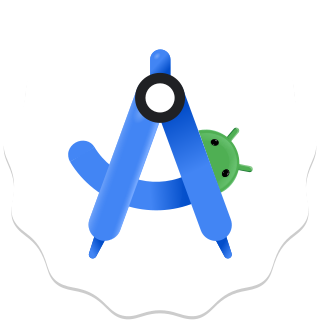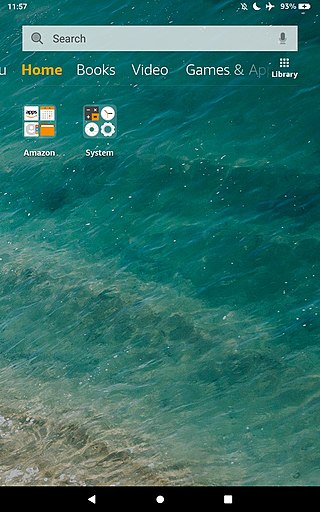A software development kit (SDK) is a collection of software development tools in one installable package. They facilitate the creation of applications by having a compiler, debugger and sometimes a software framework. They are normally specific to a hardware platform and operating system combination. To create applications with advanced functionalities such as advertisements, push notifications, etc; most application software developers use specific software development kits.
A closed platform, walled garden, or closed ecosystem is a software system wherein the carrier or service provider has control over applications, content, and/or media, and restricts convenient access to non-approved applicants or content. This is in contrast to an open platform, wherein consumers generally have unrestricted access to applications and content.
Silver Creek Entertainment is a U.S.-based game developer of classic card games. It was established in 1994. The company released games for Xbox Live Arcade, Windows and Mac OS X:

OverDrive Media Console was a proprietary, freeware application developed by OverDrive, Inc. for use with its digital distribution services for libraries, schools, and retailers. The application enables users to access audiobooks, eBooks, periodicals, and videos borrowed from libraries and schools—or purchased from booksellers—on devices running Android, BlackBerry, iOS (iPad/iPhone/iPod), and Windows, including Mac and Windows desktop and laptop computers.
The Android SDK is a software development kit for the Android software ecosystem that includes a comprehensive set of development tools. These include a debugger, libraries, a handset emulator based on QEMU, documentation, sample code, and tutorials. The SDK is part of the official Android Studio IDE but its various tools and resources can be used independently.
The Android Package with the file extension apk is the file format used by the Android operating system, and a number of other Android-based operating systems for distribution and installation of mobile apps, mobile games and middleware. A file using this format can be built from source code written in either Java or Kotlin.

Solar2D is a free and open-source, cross-platform software development kit originally developed by Corona Labs Inc. and now maintained by Vlad Shcherban. Released in late 2009, it allows software programmers to build 2D mobile applications for iOS, Android, and Kindle, desktop applications for Windows, Linux and macOS, and connected TV applications for Apple TV, Fire TV and Android TV.

The Barnes & Noble Nook is a brand of e-readers developed by American book retailer Barnes & Noble, based on the Android platform. The original device was announced in the U.S. in October 2009, and was released the next month. The original Nook had a six-inch E-paper display and a separate, smaller color touchscreen that serves as the primary input device and was capable of Wi-Fi and AT&T 3G wireless connectivity. The original Nook was followed in November 2010 by a color LCD device called the Nook Color, in June 2011 by the Nook Simple Touch, and in November 2011 and February 2012 by the Nook Tablet. On April 30, 2012, Barnes & Noble entered into a partnership with Microsoft that spun off the Nook and college businesses into a subsidiary. On August 28, 2012, Barnes and Noble announced partnerships with retailers in the UK, which began offering the Nook digital products in October 2012. In December 2014, B&N purchased Microsoft's Nook shares, ending the partnership.
Corona Labs Inc., formerly Ansca Mobile, was a software company based in Palo Alto, California, best known for building a 2D game and app development platform. Its most popular product was the Corona SDK, a cross-platform mobile development framework that builds native apps for iOS, Android, Amazon Kindle, Windows Phone, tvOS, Android TV, and Mac and Windows desktops from a single code base. Corona products use the programming language Lua. The company changed hands several times before closing on May 1, 2020.

Google Cloud Messaging (GCM) was a mobile notification service developed by Google that enables third-party application developers to send notification data or information from developer-run servers to applications that target the Google Android Operating System, as well as applications or extensions developed for the Google Chrome internet browser. It was available to developers free of charge. The GCM Service was first announced in June 2012 as a successor to Google's now-defunct Android Cloud to Device Messaging (C2DM) service, citing improvements to authentication and delivery, new API endpoints and messaging parameters, and the removal of limitations on API send-rates and message sizes. It has been superseded by Google's Firebase Cloud Messaging (FCM) on May 29, 2019.
A digital newsstand is a digital distribution platform for downloadable newspapers, magazines and journals. Examples include Apple's Newsstand and Google Play Newsstand – both of which have been discontinued – Amazon Kindle Newsstand and Magzter. It is an online development of the traditional news stand.

Android Studio is the official integrated development environment (IDE) for Google's Android operating system, built on JetBrains' IntelliJ IDEA software and designed specifically for Android development. It is available for download on Windows, macOS and Linux based operating systems. It is a replacement for the Eclipse Android Development Tools (E-ADT) as the primary IDE for native Android application development. Android Studio is licensed under the Apache license but it ships with some SDK updates that are under a non-free license, making it not open source.
Google Cast is a proprietary protocol developed by Google for playing Internet-streamed audiovisual content on a compatible consumer device. The protocol is used to initiate and control playback of content on digital media players, high-definition televisions, and home audio systems using a mobile device, personal computer, or smart speaker. The protocol was first launched on July 24, 2013, to support Google's first-generation Chromecast player. The Google Cast SDK was released on February 3, 2014, allowing third parties to modify their software to support the protocol. According to Google, over 20,000 Google Cast-ready apps were available as of May 2015. Support for Google Cast has since been integrated into subsequent devices, such as the Nexus Player and other Android TV devices, as well as soundbars, speakers, and later models of the Chromecast. Consumer devices that natively support the protocol are marketed as Chromecast built-in. As of October 2017, over 55 million Chromecasts and Chromecast built-in devices have been sold.

Fire OS is a mobile operating system based on the Android Open Source Project (AOSP). It is developed by Amazon for their devices. Fire OS includes proprietary software, a customized user interface primarily centered on content consumption, and heavy ties to content available from Amazon's storefronts and services.
Google Play Services is a proprietary software package produced by Google for installation on Android devices. It consists of background services and libraries for use by mobile apps running on the device. When it was introduced in 2012, it provided access to the Google+ APIs and OAuth 2.0. It expanded to cover a variety of Google services, allowing applications to communicate with the services through common means.

Google Cardboard is a discontinued virtual reality (VR) platform developed by Google. Named for its fold-out cardboard viewer into which a smartphone is inserted, the platform was intended as a low-cost system to encourage interest and development in VR applications. Users can either build their own viewer from simple, low-cost components using specifications published by Google, or purchase a pre-manufactured one. To use the platform, users run Cardboard-compatible mobile apps on their phone, place it into the back of the viewer, and view content through the lenses.

The Brigadier General Charles E. McGee Library, formerly the Silver Spring Library, is part of the Montgomery County Public Libraries System. It opened to the public in 1931 and is currently located at 900 Wayne Avenue in Silver Spring, Maryland. The library is named for Charles E. McGee, a Tuskegee Airman who had lived in Montgomery County.

OfficeSuite is a cross-platform office suite application developed by MobiSystems. It has versions for Android, iOS and Microsoft Windows (PC) and adds extensive PDF abilities to its compatibility with the most frequently used Microsoft Office file formats. The software has over 220 million downloads on Google Play and is among the top Android business applications.

Blast Monkeys is a physics based mobile puzzle video game developed by American studio Yobonja and was released for iOS in January 2011 and Android in February 2011. The game was developed using Corona SDK. There are 13 worlds with 30 levels each.










